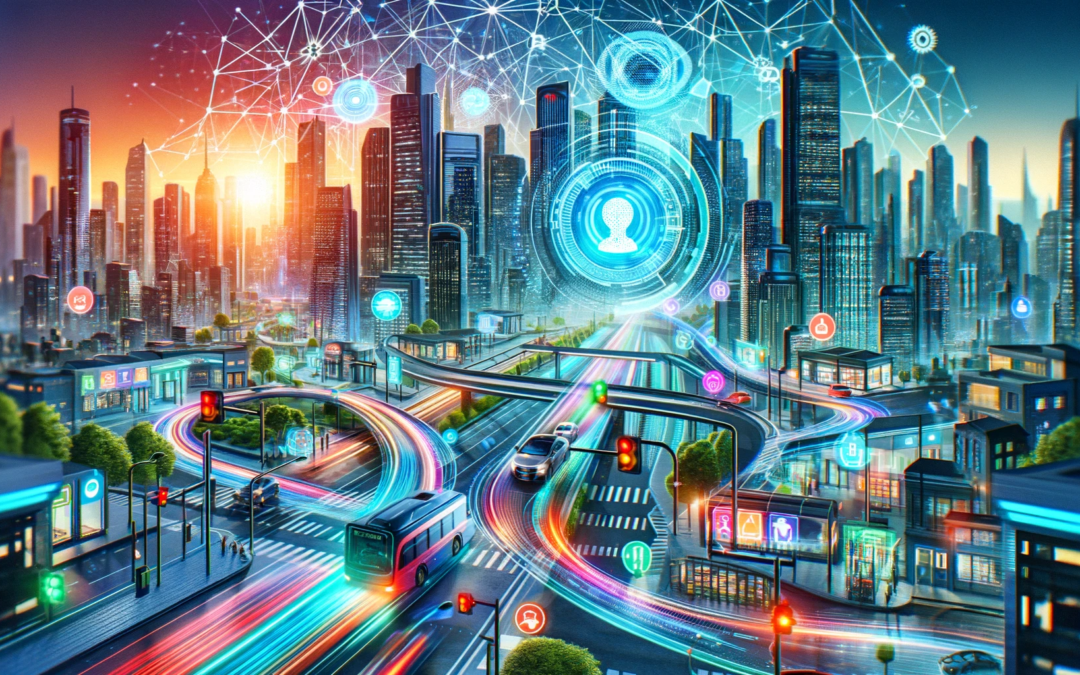Modern urban transportation systems face numerous challenges, from traffic congestion to inefficient public transportation. However, with the advent of human-level artificial intelligence (AI), cities are now on the verge of a transportation revolution. This blog post explores how AI is transforming urban landscapes, improving transportation systems, and contributing to the development of smarter, more efficient, and sustainable cities.
AI in Traffic Management and Optimization
One of the key areas where AI is making a significant impact is in traffic management and optimization. AI algorithms analyze real-time traffic data to optimize traffic flow, reduce congestion, and improve road safety. Cities like Singapore and Los Angeles have already implemented AI-driven traffic management systems, resulting in smoother traffic flow and reduced travel times.
Autonomous Vehicles and Public Transportation
AI is also playing a crucial role in the development of autonomous vehicles. From self-driving cars to autonomous buses and trains, AI technology is revolutionizing public transportation systems. These vehicles use AI algorithms to navigate roads, make real-time decisions, and ensure passenger safety. The integration of autonomous vehicles into public transportation networks is set to transform the way people commute and travel within cities.
AI-Driven Urban Planning and Infrastructure
AI tools are assisting urban planners in various ways, from infrastructure development to utility management. AI algorithms analyze vast amounts of data to optimize urban planning decisions, such as determining the best locations for new roads, parks, and buildings. Specific projects, such as the Sidewalk Labs initiative in Toronto, showcase how AI can be used to create more sustainable and livable cities.
Environmental Impact and Sustainability
One of the most significant benefits of AI in urban transportation is its contribution to environmental sustainability. AI-powered systems help reduce emissions by optimizing traffic flow, promoting the use of electric and hybrid vehicles, and encouraging the adoption of green transportation solutions. By minimizing congestion and promoting efficient travel, AI is helping cities become more environmentally friendly and sustainable.
Challenges and Ethical Considerations
While AI offers immense potential for improving urban transportation, it also presents challenges and ethical considerations. Data privacy and security are crucial concerns when implementing AI-driven systems. Additionally, there are concerns about the impact of AI on employment, as autonomous vehicles and AI-powered systems may replace certain jobs. Addressing these challenges and ensuring ethical use of AI is essential for the successful integration of AI into urban transportation.
The Future of AI in Urban Transportation
The future of AI in urban transportation holds exciting possibilities. As AI technology continues to advance, we can expect further improvements in traffic management, autonomous vehicles, and urban planning. However, questions remain about the long-term impact of AI on urban living and mobility. Will AI lead to more efficient and sustainable cities, or will it create new challenges? The future of AI in urban transportation is a topic that warrants further exploration and discussion.
Engaging with the Audience
We invite readers to share their thoughts and experiences with AI-driven transportation systems. What benefits do you see in integrating AI into urban transportation? What concerns or drawbacks do you foresee? Join the conversation and let us know your perspective on the future of city living and mobility in the age of technology.
Conclusion
AI is revolutionizing urban transportation and paving the way for smarter cities. From optimizing traffic flow and improving road safety to developing autonomous vehicles and promoting sustainable transportation solutions, AI is reshaping the future of urban mobility. However, it is crucial to approach AI integration in urban transportation with ethics, sustainability, and a human-centered focus. By leveraging AI technologies responsibly, we can create cities that are not only smarter but also more livable, inclusive, and environmentally friendly.
Visual Elements
Include images or graphics showcasing AI applications in urban transportation, such as smart traffic systems, autonomous vehicles, and urban planning interfaces. Use infographics to illustrate the impact of AI on reducing traffic congestion and enhancing city life.
SEO Elements
Keywords: AI in urban transportation, smart cities, AI and autonomous vehicles
Meta Description: Explore how AI is shaping the future of urban transportation and smart cities. Discover the transformative impact of AI in traffic management, autonomous vehicles, and sustainable urban planning.










